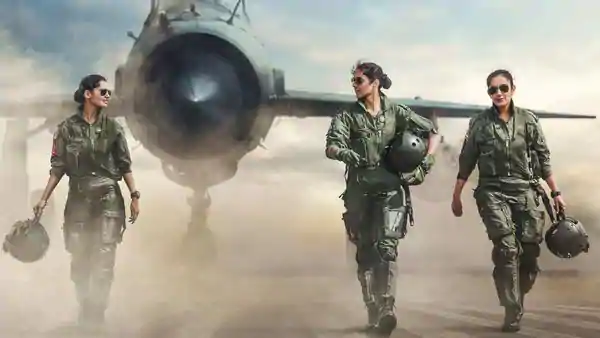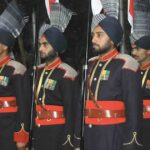
SOURCE: HT
Former Indian Air Force chief Arup Raha (retd), under whose leadership women officers were cleared to join the fighter stream for the first time, said some people in the service raised “practical concerns” over women flying war planes and he built a consensus to end the rigid gender-based combat exclusion policy.
The decision to induct women in the fighter stream was taken five years ago.
“I won’t say there were no challenges and the proposal to allow women in the fighter stream faced no resistance. But this wasn’t due to a gender bias. It was because people pointed out practical difficulties related to biological issues — mainly pregnancy-related aspects,” air chief marshal Raha told HT.
The controversy triggered by the Netflix film, Gunjan Saxena: The Kargil Girl, has turned the spotlight on women in the military, particularly the air force. While women officers have been flying helicopters and transport planes for more than two decades, the IAF’s first female fighter pilots were commissioned into service only three years ago.
Raha said he dealt with the internal resistance to the proposal to allow women to fly fighter jets by emphasising the need to be progressive and giving them a chance to realise their aspirations.
“My argument was if women want to become fighter pilots, then why should we stop them? Women pilots cannot perform the duties assigned to them during pregnancy as that may not be good for the mother and the baby. But that would be for a certain period of time. The bigger goal was to empower women and people eventually understood that,” said Raha.
In 2016, the IAF advised its first batch of three women trainees to put off motherhood for at least four years after they got into service so that their training schedule was not disrupted. That was only an advisory and not a no-pregnancy clause.
The decision to allow women to fly warplanes was taken on an experimental basis in 2015 for five years. The air force is set to expand the scope of the experimental fighter pilot programme for women, IAF Air Chief Marshal RKS Bhadauria told HT in an interview in May.
Nine women have been commissioned as fighter pilots after the experimental scheme for their induction into the combat stream was introduced in 2015, a watershed in the air force’s history. The government then said it was a progressive step that mirrored contemporary trends in the militaries of developed countries. “I think women fighter pilots have settled into their new roles rather well and their performance matches that of their male counterparts. It’s important to empower women in our country where even educated families sometimes do not provide them equal opportunities,” said Raha.
The former IAF chief said he hadn’t watched the film, Gunjan Saxena: The Kargil Girl, but felt miserable about the way the air force had been projected from reading some reviews.
“The film has maligned the reputation of the IAF. The content appears to have been trivialized and commercialized. The film makers have wasted an opportunity to project women and the military in the right light,” Raha said.
Currently, there are a total of 111 women pilots serving in the IAF, including those who fly transport planes and choppers.
The head count of women in the military adds up to nearly 3,500, but combat roles were off limits to them until the IAF took the lead in crushing internal resistance to induct them into the fighter stream.
Warships, tanks and combat positions in infantry are still no-go zones for women, who were allowed to join the armed forces outside the medical stream for the first time in 1992.
The armed forces began inducting women by granting them short-service commission for five to 10 years before the government came out with a new policy in 2008 to give them permanent commission in a few arms and services.






